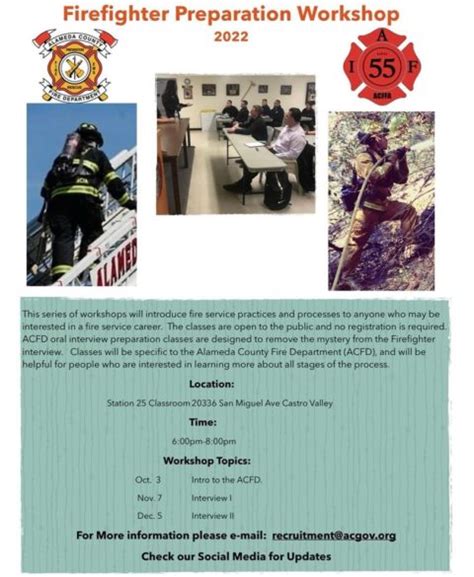Fire Careers

The fire service is a vital and noble profession, with a rich history and a diverse range of career paths. From firefighters battling blazes on the front lines to administrative roles supporting the operation, the fire service offers a multitude of opportunities. This article will delve into the various aspects of fire careers, providing an in-depth analysis of the profession, its requirements, and the impact it has on communities.
The Diversity of Fire Careers

When one thinks of a career in fire, the image of a firefighter in full gear often comes to mind. While this iconic role is undoubtedly crucial, the fire service encompasses a wide array of professions. Let’s explore some of the diverse career paths within this field.
Firefighter: The Frontline Hero
Firefighters are the backbone of the fire service. These individuals are trained to respond to a variety of emergency situations, including structure fires, vehicle accidents, medical emergencies, and natural disasters. Their role is multifaceted, requiring physical strength, mental agility, and a deep understanding of fire behavior and safety protocols.
Firefighters undergo rigorous training to develop the skills needed to tackle these challenges. This includes courses in fire suppression, emergency medical response, hazardous materials handling, and rescue operations. They must also maintain a high level of physical fitness to endure the demands of the job.
| Firefighter Skills | Description |
|---|---|
| Fire Suppression | Tactics and techniques to control and extinguish fires. |
| Emergency Medical Response | Providing life-saving care at accident scenes and medical emergencies. |
| Hazardous Materials Handling | Safe handling and disposal of hazardous substances. |
| Rescue Operations | Techniques for rescuing people from various dangerous situations. |

Fire Inspectors: Preventing Disasters
Fire inspectors play a crucial role in fire safety by conducting inspections and enforcing fire codes. They visit buildings, businesses, and residential areas to ensure compliance with fire safety regulations. This proactive approach helps prevent fires and ensures the safety of occupants.
Inspectors examine fire protection systems, such as sprinklers and alarms, and ensure that they are properly maintained and functioning. They also educate building owners and occupants on fire safety practices, providing guidance on evacuation procedures and fire prevention measures.
| Fire Inspector Responsibilities | Details |
|---|---|
| Inspections | Conduct thorough inspections of buildings and facilities. |
| Code Enforcement | Enforce fire safety regulations and issue citations if necessary. |
| Education | Provide fire safety training and awareness to the public. |
| Report Writing | Document inspection findings and prepare detailed reports. |
Fire Investigators: Unraveling the Mystery
Fire investigators are tasked with determining the origin and cause of fires, particularly those suspected of being arson. This role requires a combination of scientific knowledge, investigative skills, and a deep understanding of fire behavior.
Investigators collect evidence from fire scenes, interview witnesses, and analyze data to piece together the events leading up to the fire. Their work is crucial in holding individuals accountable for arson and ensuring that appropriate safety measures are implemented to prevent future incidents.
| Fire Investigator Skills | Description |
|---|---|
| Forensic Science | Applying scientific methods to analyze fire scenes. |
| Interviewing Techniques | Conducting interviews with witnesses and suspects. |
| Fire Behavior Analysis | Understanding fire patterns and dynamics. |
| Report Writing | Preparing detailed reports on fire investigations. |
Education and Training

A career in fire often begins with a solid foundation in education and training. The specific requirements can vary depending on the role and the region, but there are some common elements that are essential for most fire service careers.
Academic Qualifications
While a high school diploma or GED is typically the minimum requirement, many fire service roles encourage or require further education. Firefighters, for instance, may pursue associate or bachelor’s degrees in fire science or a related field. These programs provide a deeper understanding of fire behavior, fire protection systems, and emergency response strategies.
For administrative and management roles, a bachelor's degree in public administration, emergency management, or a related field is often preferred. These degrees provide a strong foundation in leadership, policy development, and strategic planning, which are crucial for effective fire service management.
Certification and Training
In addition to academic qualifications, fire service professionals must obtain specific certifications and complete extensive training. These certifications and training programs ensure that individuals possess the necessary skills and knowledge to perform their roles effectively and safely.
Firefighters, for example, are required to obtain certifications such as Emergency Medical Technician (EMT) or Paramedic, as well as complete training in fire suppression techniques, hazardous materials handling, and rescue operations. Fire inspectors and investigators also require specialized training and certifications in their respective fields.
| Common Certifications | Description |
|---|---|
| Emergency Medical Technician (EMT) | Provides basic emergency medical care. |
| Paramedic | Advanced emergency medical care and life support. |
| Fire Inspector Certification | Qualifies individuals to conduct fire inspections. |
| Fire Investigator Certification | Specialized certification for fire investigation. |
Career Advancement and Specializations
The fire service offers numerous opportunities for career advancement and specialization. As individuals gain experience and expertise, they can progress into leadership roles, supervisory positions, or highly specialized fields.
Leadership and Management Roles
Experienced firefighters can advance into leadership positions, such as Fire Captain or Battalion Chief. These roles involve overseeing teams of firefighters, making critical decisions during emergency responses, and ensuring the effective management of resources.
In administrative roles, individuals can progress to become Fire Chiefs or Fire Marshals. These positions involve strategic planning, policy development, and oversight of the entire fire department or district. They require strong leadership skills, a deep understanding of fire service operations, and the ability to effectively manage a large team.
Specialized Fields
The fire service offers several specialized fields that cater to specific interests and expertise. Here are a few examples:
- Arson Investigation: Fire investigators with a specialization in arson can delve deeper into the forensic aspects of fire investigation, using advanced techniques to determine the cause and origin of fires.
- Wildland Firefighting: This field focuses on battling wildfires, a unique and challenging aspect of fire suppression. Wildland firefighters require specialized training and equipment to tackle these intense and often unpredictable fires.
- Hazmat Response: Hazmat specialists respond to incidents involving hazardous materials, such as chemical spills or leaks. They require extensive training in the identification, containment, and disposal of hazardous substances.
- Fire Engineering: Fire engineers work on the design and implementation of fire protection systems in buildings. They collaborate with architects and engineers to ensure that structures meet fire safety standards and regulations.
Impact on Communities
Fire careers are not just about responding to emergencies; they have a profound impact on the communities they serve. Firefighters, inspectors, and investigators are integral to maintaining public safety and preventing disasters.
Community Education and Engagement
Fire service professionals often engage with the community through educational programs and outreach initiatives. They visit schools, community centers, and public events to raise awareness about fire safety, teach evacuation procedures, and provide demonstrations of fire suppression techniques.
By fostering a culture of fire safety within the community, fire service professionals empower individuals to take an active role in preventing fires and ensuring their own safety. This community engagement helps build trust and strengthens the relationship between the fire service and the public.
Disaster Response and Recovery
When natural disasters strike, the fire service is often on the front lines, providing critical response and recovery efforts. Firefighters, along with other emergency responders, work tirelessly to rescue individuals, provide medical care, and support the overall recovery process.
Their expertise in emergency response and disaster management is invaluable during these challenging times. They coordinate with other agencies, set up emergency shelters, and provide essential services to those affected by the disaster. The fire service's role in disaster response and recovery demonstrates their commitment to protecting and supporting their communities.
Conclusion: A Fulfilling and Challenging Career

A career in fire is both rewarding and demanding. It requires a unique blend of physical strength, mental agility, and a deep commitment to community safety. Whether it’s battling blazes, conducting inspections, or investigating fires, fire service professionals play a vital role in protecting lives and property.
The diversity of roles, the opportunity for advancement, and the impact on communities make a career in fire an appealing choice for those passionate about public service. With a strong foundation in education, training, and a dedication to continuous learning, individuals can pursue a fulfilling and meaningful career in the fire service.
What are the physical requirements for becoming a firefighter?
+Firefighters must meet specific physical fitness standards to ensure they can perform the demanding tasks of the job. This typically includes passing a rigorous physical ability test (PAT) and maintaining a healthy weight and cardiovascular fitness.
How long does it take to become a fire inspector or investigator?
+The path to becoming a fire inspector or investigator can vary, but typically, it involves obtaining a relevant degree (often in fire science or a related field) and completing specialized training and certification programs. The timeline can range from a few years to several, depending on the individual’s educational background and experience.
What are some challenges faced by fire service professionals?
+Fire service professionals face numerous challenges, including the physical and mental demands of the job, the emotional toll of witnessing trauma and loss, and the constant need to adapt to changing technologies and fire safety regulations. They also deal with the risk of injury and the potential for long-term health issues related to exposure to hazardous materials and fire byproducts.



